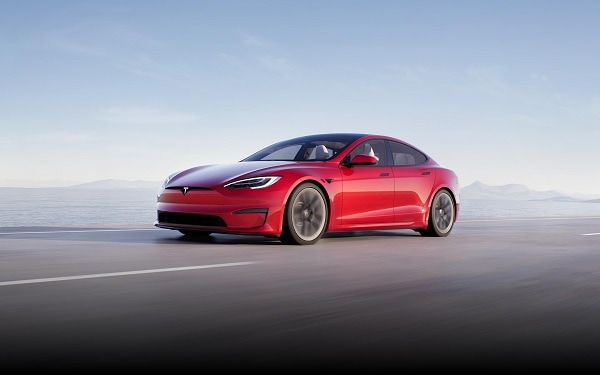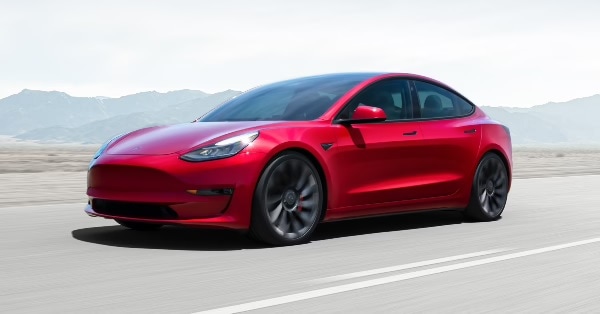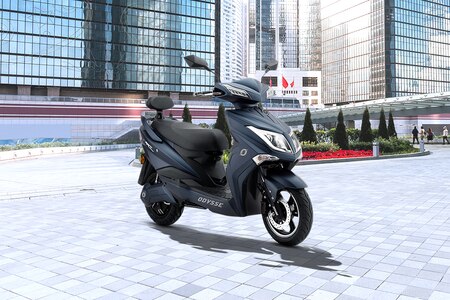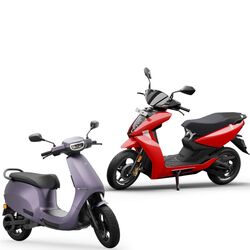Incentive, new players to fuel EV growth in India over next few years: Experts
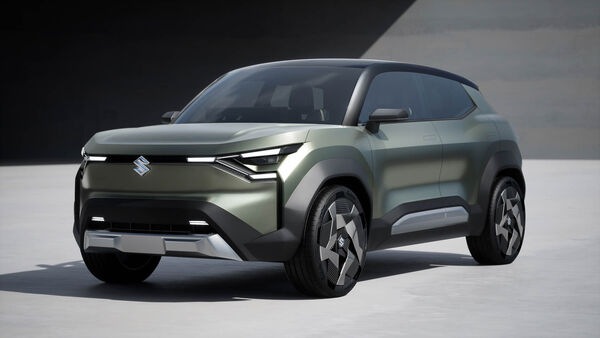

India's electric vehicle (EV) market is experiencing a remarkable surge, with sales nearly doubling in 2023 to account for 2 per cent of the overall passenger vehicle (PV) sales. This growth is fueled by various factors, including government incentive schemes, infrastructure development such as the expansion of EV charging points, increasing urban consumer interest, and a governmental push to meet green targets.
Earlier, the Federation of Automobile Dealers Associations (FADA) reported a significant surge in retail sales of EVs, reflecting a growing preference for cleaner transportation in India.
Sales of electric passenger vehicles surged to 90,996 units in the fiscal year 2023-24, marking a remarkable 91 per cent increase from 47,551 units in FY23. Registrations of electric two-wheelers also saw substantial growth, rising by 30 per cent to 9,47,087 units in FY23-24 from 7,28,205 units in FY23. Meanwhile, report by Society of Indian Automobile Manufacturers (SIAM) suggested a 90 per cent increase in electric passenger vehicle retails while electric two wheelers surged by 30 per cent.
Also check these Vehicles
The entry of global giant Tesla into the Indian market, along with CEO Elon Musk's recent visit, has further bolstered expectations for significant growth in the Indian EV market in the coming years. Experts consider the upcoming years crucial for India's energy sector, highlighting the pivotal role of EV adoption in enhancing end-use efficiency in the country's road transport segment.
Tata Motors currently dominates over two-thirds of the country's EV market, but other players like Mahindra & Mahindra and Build Your Dreams (BYD) are also gaining traction. Mahindra & Mahindra recorded a staggering 2476 per cent increase in 2023, primarily driven by the success of its all-electric SUV XUV400. BYD, with its e6 MPV and Atto 3 SUV models, grew by over 1500 per cent in the same year. The recent launch of the Seal model by BYD is expected to further strengthen its presence in the Indian EV market.
Also Read : EV sales in India expected to soar in 2024 after doubling in 2023. Here’s why
A research report by Counterpoint Research predicts a 66 per cent increase in India's EV sales in 2024, with EVs expected to capture a 4 per cent market share in the passenger vehicle segment.
By 2030, EVs are projected to constitute nearly one-third of India's total PV sales. Maruti Suzuki is also set to enter the EV market with its eVX SUV in 2025. This model, featuring a 60kWh battery pack and a range of up to 550 km, is expected to be a significant player in the market.
The entry of Tesla and Maruti Suzuki into the Indian market is likely to shake up the dominance of Tata Motors and Mahindra & Mahindra. Additionally, Vietnam's auto major VinFast has announced plans to build a factory in Tamil Nadu with an investment of ₹4000 crore, further intensifying competition in the Indian EV market.
Government policy incentives, such as the Production Linked Incentive (PLI) scheme for Advanced Chemistry Cells (ACC) and the reduction in import duties on EVs to 15 per cent, are driving significant investments in EV battery manufacturing in India. New entrants such as Reliance New Energy, Ola, and ACC Energy Storage are joining the EV battery market, while Exide has partnered with Kia and Hyundai to supply batteries for their EVs. This shift towards domestic battery manufacturing is anticipated to lower costs and drive up EV sales in India.
These developments signal a major shift towards sustainable and eco-friendly technologies in India's automotive sector. With the government's proactive initiatives and the entry of global players, India is poised to become a key player in the global EV market.








 64.8 kWh
64.8 kWh 418 Km
418 Km
